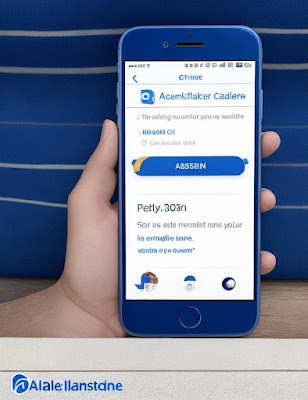General liability insurance introduction
Table of Contents
Understanding General Liability Insurance
For every business owner, especially those initiating operations in the United States, comprehending the essence of General Liability Insurance is of paramount importance. This particular insurance category offers indispensable safeguards against possible hazards, thereby ensuring the financial stability and reputation of your organization.
General liability insurance functions as a safeguard against a diverse array of situations that may arise within the course of business activities. It encompasses coverage for instances such as bodily injuries, property damage, personal injuries, and advertising injuries. In practical terms, if someone sustains an injury on your premises or your products inadvertently cause harm, general liability insurance extends its protective umbrella to encompass medical expenses and legal fees related to the incident.
Moreover, the gamut of general liability insurance encompasses provision for legal expenses in scenarios where your business faces a lawsuit due to negligence or allegations that your advertising infringes on the rights of others. Consequently, the insurance comes to the fore by defraying the costs related to legal representation, settlements, or judgments against your business.
By procuring general liability insurance, you’re effectively insulating your business against unanticipated financial setbacks, thereby safeguarding your assets. Additionally, the insurance fosters peace of mind among your clientele, offering them the assurance that you’ve taken proactive measures to mitigate potential risks. In the subsequent segment, we’ll delve into why general liability insurance is particularly pertinent for small businesses, outlining its specific advantages.
The Significance of General Liability Insurance for Small Businesses
The journey of initiating a small business can be exhilarating and rewarding. However, it’s important to acknowledge that it’s accompanied by a fair share of associated risks. This is where general liability insurance assumes paramount importance, especially for small businesses in the United States.
While larger corporations might possess the resources to weather financial storms, small businesses are typically more vulnerable. A solitary unexpected mishap or lawsuit has the potential to precipitate catastrophic financial ramifications that could potentially cripple your company. The acquisition of general liability insurance serves as a potent shield against such vulnerabilities.
In addition to providing coverage for bodily injuries, property damage, and personal and advertising injuries, this form of insurance is instrumental in fostering peace of mind. As a small business owner, the assurance of having insurance coverage empowers you to concentrate on the operations and growth of your business without the constant specter of potential liabilities looming overhead.
Furthermore, general liability insurance has the capacity to bolster your credibility and reputation. When clients and customers perceive that you possess insurance coverage, their trust in your business is heightened, and they engage with you with a sense of security.
Encompassing Claims Addressed by General Liability Insurance
The umbrella of general liability insurance encompasses a wide spectrum of claims that can surface during the course of business endeavors. Familiarity with these claim categories is imperative to fully grasp the value and significance of integrating general liability insurance into your business strategy.
One of the predominant claim categories that general liability insurance covers pertains to bodily injuries. Should a customer or visitor to your business premises encounter a slip, fall, or any form of physical injury, general liability insurance would step in to defray the medical expenses linked to their injuries.
Claims related to property damage are also well within the purview of general liability insurance. If your business operations inadvertently result in damage to someone else’s property – for example, accidentally knocking over a display or spilling liquid on expensive equipment – this insurance category facilitates the coverage of costs associated with repair or replacement.
Personal injury claims, encompassing aspects like slander, libel, or defamation, are also within the ambit of general liability insurance. In situations where your business inadvertently tarnishes someone’s reputation through false statements or advertising, this form of insurance extends its protective veil to encompass legal expenses related to these claims.
Lastly, advertising injury claims also fall under the aegis of general liability insurance. In instances where another business alleges that your advertising encroaches upon their intellectual property rights or causes financial harm, this insurance class steps in to cushion the financial impact of legal representation, settlements, or judgments.
A thorough understanding of the breadth of claims that general liability insurance encapsulates is imperative to safeguard your business from unforeseen financial setbacks. By acquiring this form of coverage, you’re empowered to steer your business’s growth trajectory with confidence, knowing that you’re prepared to address any potential claims that might emerge.
Common Misconceptions about General Liability Insurance
Within the sphere of general liability insurance, a number of prevalent misconceptions tend to mislead business proprietors. Let’s debunk some of these myths and elucidate the accurate narrative.
Misconception #1: "I don't need general liability insurance because I have a small business."
This assumption is perilous. Irrespective of a business’s size, unexpected accidents, lawsuits, and financial losses are inherent risks. General liability insurance stands as a formidable bulwark against such vulnerabilities, regardless of the dimensions of your business.
Misconception #2: "I have other types of insurance, so I don't need general liability coverage."
While other insurance categories like property or professional liability insurance hold significance, they don’t offer the same degree of coverage as general liability insurance. Each form of insurance serves a distinct purpose, and having general liability coverage is pivotal to safeguard your business from diverse potential risks.
Misconception #3: "I can't afford general liability insurance."
The cost associated with general liability insurance is contingent on variables such as the scope of your business and the extent of coverage you opt for. However, the potential financial losses and legal expenses that can emanate from a lack of insurance far surpass the cost of premiums.
*Miscon
Choosing the Ideal General Liability Insurance Policy: A Comprehensive Guide
Understanding the Significance
Having comprehended the pivotal role that general liability insurance plays in safeguarding your business, along with its array of benefits, it’s time to delve into the art of selecting the perfect policy for your unique enterprise. This critical decision entails a thoughtful evaluation of several key factors that will determine the optimal coverage for your business’s specific needs and potential risks.
Key Considerations When Opting for a General Liability Insurance Policy
Evaluate Your Business Risks: Embark on this journey by conducting a comprehensive assessment of the risks that are intricately woven into the fabric of your business. The nature of your industry, the products or services you offer, and the potential for accidents or injuries must all be meticulously analyzed. This evaluation forms the foundation upon which you will build a tailored insurance strategy, encompassing the appropriate coverage limits and policy features.
Thorough Research of Insurance Providers: In your pursuit of the perfect insurance policy, it’s imperative to align yourself with reputable insurance providers who specialize in catering to the diverse needs of businesses. Scrutinize reviews and ascertain their financial stability, as this serves as a litmus test for their capability to fulfill their obligations in the event of a claim.
Comparing Coverage Options: Embark on a journey of exploring the coverage options proffered by different insurance providers. Your unique business risks must serve as the compass guiding this exploration. Opt for a policy that stands as an impregnable shield against the specific vulnerabilities that your business encounters. Look for comprehensive coverage that includes bodily injury, property damage, personal injury, and the sphere of advertising injury.
Balancing Deductibles and Premiums: A pivotal aspect of your decision-making process involves the calibration of deductibles and premiums associated with diverse policies. Deductibles represent the sum you need to contribute from your own pocket before the insurance coverage steps in. On the other hand, premiums signify the regular payments you extend for the policy. Striking the perfect equilibrium between affordability and robust coverage is paramount.
Harness Professional Expertise: The labyrinthine realm of general liability insurance warrants expert guidance. Consider collaborating with an insurance agent or broker who possesses specialized prowess in the realm of general liability coverage. Their insights are invaluable, serving as a compass that navigates the intricate landscape of insurance policies.
A Diligent Review of the Fine Print: Prior to committing to a decision, immerse yourself in a meticulous scrutiny of the intricate terms and conditions embedded within the policy. In particular, focus on potential exclusions and limitations. Additionally, be attuned to the presence of any supplementary endorsements or optional coverages that might augment your chosen policy.
An Informed Decision for Long-Term Stability
By meticulously adhering to this strategic blueprint, you’re poised to select a general liability insurance policy that stands as the epitome of alignment with your business’s unique needs. This decision safeguards your enterprise from potential hazards while laying the foundation for enduring success and stability.
Feel free to review and adapt this content as needed to match your style and requirements. If you have any further requests or need additional assistance, please don't hesitate to ask


.png)

.png)




.png)


